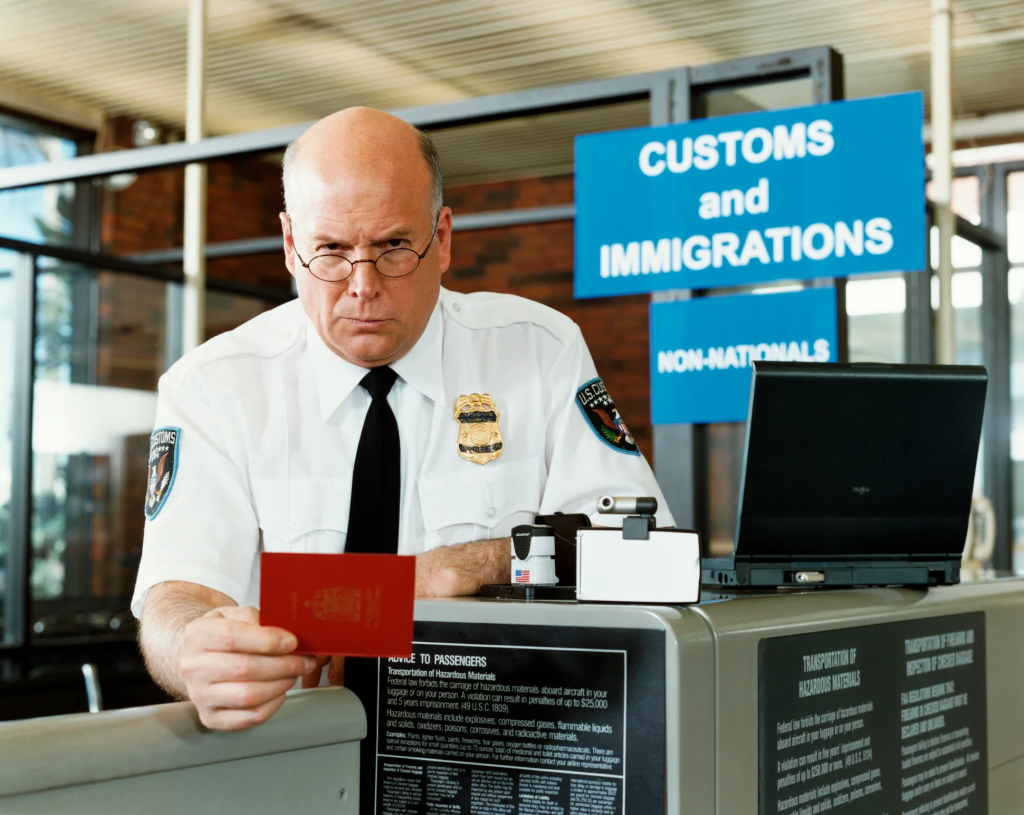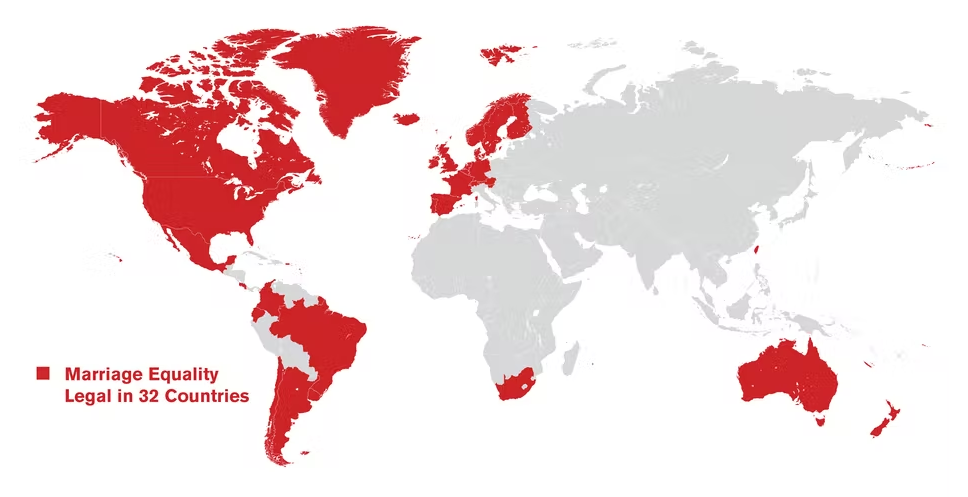Personal Note: I’m still on vacation, but this is the part where we tear the house apart in preparation for renovations—where we box up entire rooms to clear them for the Invasion of the Contractors that begins next week. My basement office is already in total disarray and will remain so until I get it re-established in an upstairs room. Adding to the confusion, Bad Things happened to my laptop in Portugal and it’s only intermittently functional. A replacement should be arriving in the next couple of days, but it will obviously be a while before operations are fully streamlined again and I’m pushing the audio experiments to the back burner until then.
John Lennon’s Imagine is the perfect leftist anthem: it’s a sappy, sentimental appeal to the better angels of our nature that, if its logic were followed through, would instantly transform our admittedly imperfect civilization into a Hieronymous Bosch hellscape.
I’d love to go through the whole song line by line and examine the probable consequences of every hypothetical it asks us to imagine, but today I just want to focus on a single line: Imagine there’s no countries.
I want to zero in on that line in particular because of a story that’s being featured prominently by a lot of Danish media this weekend:
DR, July 30:
Danish-German politician complains to the government about the consequences of border controls
Berlingske.dk, July 30:
Border control again creates a queue at the German border
TV2 News, July 31 (second item):
Police to Danes on their way home: There can be heavy traffic at the border
Jyllands-Posten, July 31:
Police warn: Here’s where traffic is jamming at the border
There aren’t supposed to be border controls within the European Union. The Schengen agreement says so and Denmark has been a signatory to that agreement since December 1996.
It’s a law that has been honored more in the breach than the observance. I mean that in the original Shakespearian sense: not that it has been more frequently breached than observed, but that it has been more honorable, or at least more sensible, for nations to breach the agreement than to observe it.
Denmark has imposed controls on its German border since 2016. This was done first as a control against the massive surge of migrants marching up from southern Europe and then sustained as a protective measure against the pandemic.
From 2016 trough 2019, according to DR, these border controls resulted in the seizure of 801 weapons, 7134 people being “turned away,” and 5479 criminal charges being filed for offenses including human trafficking, weapons possession, and drug trafficking.
In other words, on an average day during that period, the border cops were seizing one illegal weapon, turning away seven people, and filing five charges for serious crimes.
That’s during a period where it was public knowledge that the border was being enforced: what on earth was seeping into Denmark when everyone knew the border wasn’t being enforced?
This is all small potatoes compared to America, obviously, where nearly a quarter million people tried to sneak across the southwestern border in the month of May alone: that’s roughly 8000 per day, every day, Sundays and holidays inclusive.
That’s nearly six people per minute. Or, if you prefer, one attempt to sneak into the country foiled every ten seconds. About two-thirds of those—more than 180,000 people—were simply released into the country. That annualizes out to 2.1 million people per year.
And we’re only counting the ones who got caught.
Now quick: imagine there’s no countries.
How long do you think it would take for the beleaguered citizens of every shithole on the planet to simply overwhelm the geopolitical entity formerly known as America? How long would it take before the continent of Europe was overrun by the same?
Before we take our deep dive into Imagine, let’s address two particular arguments against border enforcement that the left likes to throw around.
Migration is a human right!
Absolutely. Human beings have an inalienable right to move about the world as they please, and in the state of nature there’s absolutely nothing to prevent movement from one part of the world to the other (which isn’t to say there aren’t natural obstacles).
Fortunately, however, we don’t live in a state of nature, but have arrived at a period of human civilization in which the rule of law has been elevated above the laws of nature.
Natural law:

Human law:

Now, be honest: which is scarier?
We all have the right to move about the planet at our pleasure, but countries—geopolitical organizations established by and for people, almost all of which are governed by rule of law—have the right to make laws with respect to who may and may not enter them, and how. To deny that is to deny existence of countries and to dismiss human law as an irrelevance.
Borders are racist!
This is a particularly stupid argument, which probably explains its popularity.
Borders are not in and of themselves “racist” or even “xenophobic.” They’re just boundaries. Everything on this side of the line is in our control, everything on that side of the line is not. If you’re a homeowner, is your property line racist? If you have an apartment, is the lock on your front door xenophobic?
There can be nasty laws as to who may and may not be permitted to cross a border: for example, there are nine countries than will deny entry to anyone with an Israeli stamp in their passport. Saudi Arabia is not one of those, but Israeli citizens are not permitted to enter Saudi Arabia. That doesn’t mean their borders are racist or anti-Semitic, only that the laws being enforced by those countries are.
Many people argued that Trump’s so-called “travel ban” was racist because it was targeted mostly at Muslim-majority countries. Islam is not a “race,” so this was never a good argument, but leave that aside. A similar ban targeting most of the same countries had been imposed by the Obama administration without much complaint, and Trump’s ban did not include some of the world’s largest Muslim-majority countries, so whether or not citizens were Arab or Muslim clearly wasn’t the point.
A lot of Danes and Americans have complained that treating Ukrainian refugees differently from Middle Eastern and North African refugees is racist. That’s not true either: a black or Arab citizen of Ukraine is treated no differently than a white one, and a white citizen of Syria is treated no differently than a black or Arab one.
From a cultural perspective, and speaking in broad generalities, a Ukrainian citizen is much more likely to fit into Europe than is a citizen of Syria or Libya, if for no other reason than Ukraine is part of Europe. By the same token, Lebanon and Turkey would most likely find Syrians a much better fit than they would Ukrainians.
Now let’s have some fun: let’s take Mr. Lennon at his word and genuinely try to “imagine there’s no countries.”
Because he later asks us to “imagine all the people sharing all the world,” we’re going to operate on the premise that in imagining a world without countries, he’s not suggesting we replace nation states with some other form of geopolitical subdivision, like city-states, but that he’s genuinely asking us to imagine a world with no geopolitical subdivisions at all.
It’s laughable on its face, if you give it a moment’s thought, but let’s play it out.
Later today, we’ll say, António Guterres announces from the U.N. podium that the nations of the world have come to unanimous agreement that, effective immediately, their governments will dissolve themselves in favor of a single global government. Either that, or to abolish government completely.
Those are, after all, the only options to “countries”: one giant global community of man, or no governing bodies at all. Let’s look at those scenarios separately.
Option One: A Single Global Government Is Sworn In at Midnight Tonight
Good job, everyone! We got rid of all those damn countries so now there’s just one global government!
What’s the global Constitution? How are laws made? How are they enforced? How can they be challenged? Who’s in the government? How are they chosen, and by whom, and how often?
Here’s a map, courtesy of HRC, of countries where gay marriage is and isn’t allowed. The vast majority of the world lives in the gray countries where it’s not permitted. Has our global government enshrined gay marriage into law, or have the red countries been compelled to ban it? Either way, how will that—and a thousand cultural issues just like it—be resolved?

There can obviously only be one global currency: how was it chosen, and what’s it worth? Who’s in charge of the treasury? What’s backing the money? How were the old currencies converted?
Who collects taxes? Who distributes benefits and entitlements? On what basis? Decided by whom? How will taxation rates be determined? By whom?
There obviously won’t be any need for any armed forces, so what will we do with all our military hardware? We don’t want law enforcement agencies with weapons of mass destruction, so presumably we’ll have to destroy them all. Who’ll do that? How will they make sure that some villainous scoundrel, or group of scoundrels, doesn’t secretly squirrel away a bunch of WMDs with which to hold the global government at bay?
How will law enforcement work? Who will determine “little” things like speed limits, signage requirements, maximum building occupancies? Who’ll establish and enforce building codes and property zoning?
Is health care going to be entirely privatized, or are we going to have universal healthcare globally?
Will freedoms of speech, assembly, and the press be permitted? What about possession of firearms?
To the extent any of those things aren’t permitted, who’s going to enforce the restrictions?
Freedom of movement will obviously be a universal right: no borders! Take a cold, hard look around the world and ask yourself how that will play out.
Are we going to throw all markets wide open?
What happens to national and regional copyrights, trademarks, and patents?
Who’s going to be in charge of driving licenses? Building permits? Bar and restaurant licenses and inspections?
Is prostitution legal? Cocaine? Heroin? Alcohol? Tobacco? Pornography? Snuff? Honor killing? Homosexuality? Transsexuality? Ovaltine? Remember: one government, one body of law.
Take any one of those questions, or any of a million like them, and think it all the way through: they all boil down to the same essentials: who’s going to make the rules, on what basis and with what constraints, who’s going to enforce them, and how?
Option Two: Every Government in the World Dissolves at Midnight Tonight
This is the option libertarian-leaning people like myself are often accused of seeking, but it’s the last thing in the world anyone with a lick of sense would ever actually want.
Government is simply banished. Dissolved. Gone.
When you wake up tomorrow, there are no longer any governing authorities. No taxes! No cops! No stupid rules or laws! We’ve all finally got the government off our backs!
Will you go to work? If so, how? (And, given that the international monetary system will have collapsed, why?)
Assuming your car hasn’t already been stolen, how safe do you feel driving on the highways and byways you’ll be sharing with people who know damn well they can speed and swerve and take left turns on red lights without running the risk of even a slap on the wrist?
If you don’t have a car, what are the odds your public transportation is going to be operating?
Do you dare walk to work now that there’s nothing to stop anyone from mugging you in broad daylight? From raping you? From mugging, raping, and then killing you?
But if you’ve got kids you won’t be going to work: not if they’re in public school, anyway. Because the sudden lack of government means there’s no longer an entity to pay the teachers, and even the most altruistic teachers are unlikely to risk their lives for a job without pay. You’re not going to want to leave the kids at home alone—not unless they can handle your firearms. (And I certainly hope you have firearms: otherwise, how are you going to defend your home?)
If you work in the public sector, you’re obviously out of a job—at least until the local warlord seizes control of the public works. He probably won’t honor union contracts, though, so you may have to adjust to a lower salary and fewer benefits. But as he’ll surely be quick to point out: the benefit is that you have a job.
And yes, I’m saying he, because in this wonderful new world without countries or governments women’s natural physical weakness relative to men’s isn’t going to be the topic of much public debate among the few intellectuals lucky enough survive the initial purges, but it will certainly be the source of great suffering. Female warlords may emerge here and there, but they’re not going to be loving daughters of Gaia: they’re going to be hard-ass, ruthless despots less interested in your feelings than in your obedience.
And speaking of suffering, what are you going to do about that infection? Where and how are you going to find a doctor, and how confident are you that, even if you can find one, you’ll be able to your hands on the antibiotics he or she prescribes?
Now, I’m sure there are optimists out there thinking that altruistic law enforcement officers would continue trying to maintain the public order locally, or that in their absence (unpaid cops are after all much more risk-averse than paid ones) there would be a surge of good Samaritans willing to serve as volunteer enforcers. (But let’s not forget that the Samaritans in question would have to be very good indeed not to let their new power go to their heads. The ring of power corrupts: today’s volunteer enforcer can all too easily become tomorrow’s warlord.)
Certainly order might be preserved like this, on a small scale and in particular communities. Unfortunately, the communities best at preserving order in the short-term would quickly become magnets to all the people in less fortunate communities.
“This is anarchy, we can’t stay here… I heard they’ve got things under control in the next town over: we’ll set out after dark and make a dash for it…”
Which is just the small-scale version of people from shit-hole countries doing their best and risking their all to try and find a home in a more stable country.
We can’t blame them for trying, but we can certainly insist that our governments do their best to ensure that immigration is orderly—that those attempting to sneak into our countries illegally are blocked and instructed to try again through the proper legal process.
Otherwise we have no country.
And that’s not something we’d even want to imagine.
